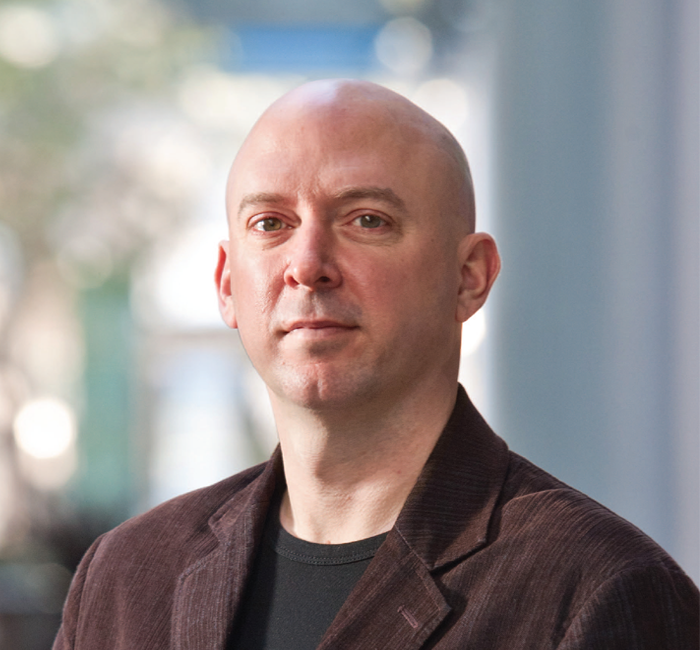Dan Pontefract is the author of “Flat Army: Creating a Connected and Engaged Organization” an Amazon best seller and he is also the Head of Learning & Collaboration at TELUS where he is responsible for the overarching leadership development, learning and collaboration strategy for the company. Dan introduced the TELUS Leadership Philosophy (TLP), an open and collaborative-based leadership framework for all 40,000+ TELUS employees in addition to a litany of social tools and the pervasive learning model. A renown speaker and practicing futurist, Dan believes today’s organizations can be so much more if only they thought about employee engagement first.
Why does the world need a work revolution? (In other words: the way we’re working isn’t working. Why not?)
Organizations are culturally broken and as a consequence… disengaged. Leaders are practicing management techniques that predate the dinosaur. Employee disengagement levels remain at roughly 70% and have been locked in at this rate for over a decade. Why? There are business consequences to such numbers. AON Hewitt researched more than 7,000 organizations and found that each disengaged employee costs an organization an average of $10,000 in profit annually. Gallup counters with a statistic suggesting each disengaged employee equates to $2,246 in operating costs. In total, this alone costs U.S.-based organizations over $300 billion in lost productivity, as well as $64 billion in the United Kingdom, $60 billion in France and roughly $6 billion in Singapore.
How are you or your organization reinventing work in some way (big or small)?
At TELUS, we launched the TELUS Leadership Philosophy — an open and collaborative leadership framework for 40,000+ team members — as a way to define a common way of operating, engaging, interacting and getting things done. It’s found in our hiring practices, performance development, succession planning and of course learning and leadership development. TELUS has shifted from an employee engagement level of 53% to 80% in under five years.
Why do you do what you do?
I live by a motto — “We’re not here to see through each other, we’re here to see each other through” — and as a result, I believe I’ve been put on this planet to help people become better citizens and for organizations to become a thriving, collaborative place of work. Oh, and I like to see people smile and succeed in their place of work. How is that a bad thing?
What kind of art (any kind) do you like and why? Any recommendations we should know about?
Poetry, in my opinion, is word art. We can learn so much from a sonnet or compositions that enlighten yesteryear as much as future thinking. Tennyson is divine as is Blake. Angelou for something more recent. I’m also an avid collector of indigenous art whether from Canada, Africa or part of Asia. That reminds me — I need to add it to my home insurance plan.
What is one specific thing your company does that makes your culture unique and/or different?
TELUS has drawn strength in its unparalleled demonstration of being able to ‘give where we live.’ Since 2000, TELUS team members and retirees have contributed more than $300 million to charitable and not-for-profit organizations and volunteered 4.8 million hours of service to local communities.
What is one discipline/industry totally different from your own that has inspired you? How does it impact your work?
Definitely the film industry, whether for the big or small screen. There are two sides to my inspiration; the first deals with the creativity, innovation and wonderment that goes into a story (fiction or non-fiction) where as a viewer you’re so entranced, learning along the way, it inspires me to reach new heights in my career or life. Chariots Of Fire, for example, is an example that inspired me to push through any perceived hardship as well as sticking to my own beliefs (and I was only 10 when it came out). The other is the sheer collaboration that goes on with any film. There are literally hundreds of people working together at various stages of a film, and if they aren’t united, collaborative and participative the film not only runs over budget but it becomes a horrific experience for everyone.
What’s one tangible and concrete technique other organizations should use if they want to create a more human and/or meaningful place to work?
I would employ one of the Flat Army models I developed called the CLAM — the collaborative leader action model — a 6 stage daily habit that encourages leaders to connect, consider, communicate, create, confirm and congratulate on actions, initiatives and projects. Far too often leaders jump to the ‘create’ stage without involving anyone else with their opinions, ideas, etc. Here’s an idea… ask people for their input and thoughts before rolling out the action plan.
What piece of technology (other than your laptop/smartphone/tablet) could you not live without and why?
Evernote. If they ever go out of business, I will be walking aimlessly on the streets trying to sort out my entire life.
What do you do for fun?
If I could ride my bike every day for four hours, I’d be a very happy man. I’d have an unhappy wife, but I’d be a happy man.
How do you stay productive throughout your day?
I invented a system for email called DADDIO (Delete, Action, Delay, Delegate, Interrupt, Optimize) — you can find out more about it here.
Where in the world are you?
Vancouver, Canada
How can people connect with you?
www.danpontefract.com or @dpontefract on Twitter


